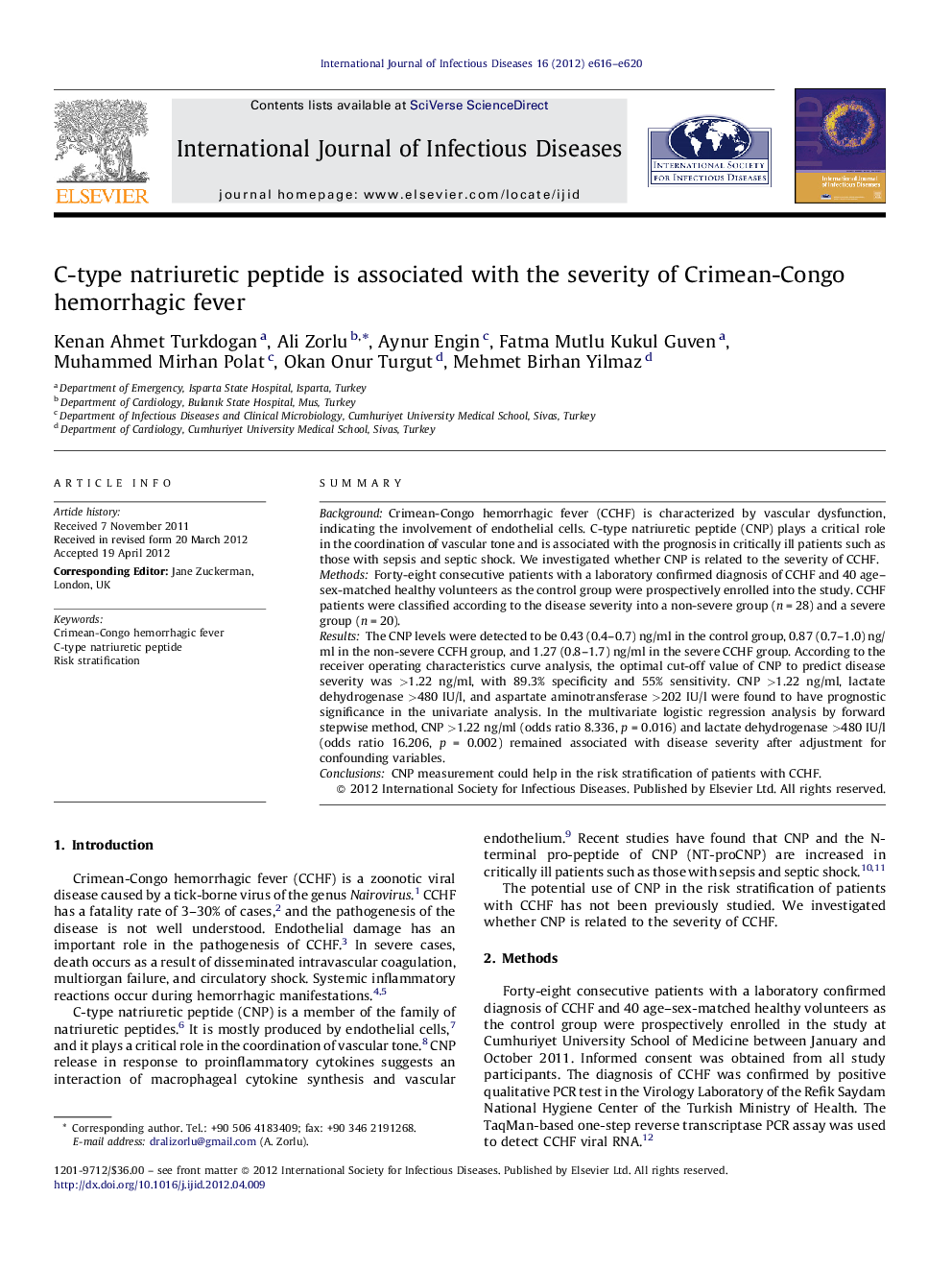| Article ID | Journal | Published Year | Pages | File Type |
|---|---|---|---|---|
| 3363035 | International Journal of Infectious Diseases | 2012 | 5 Pages |
SummaryBackgroundCrimean-Congo hemorrhagic fever (CCHF) is characterized by vascular dysfunction, indicating the involvement of endothelial cells. C-type natriuretic peptide (CNP) plays a critical role in the coordination of vascular tone and is associated with the prognosis in critically ill patients such as those with sepsis and septic shock. We investigated whether CNP is related to the severity of CCHF.MethodsForty-eight consecutive patients with a laboratory confirmed diagnosis of CCHF and 40 age–sex-matched healthy volunteers as the control group were prospectively enrolled into the study. CCHF patients were classified according to the disease severity into a non-severe group (n = 28) and a severe group (n = 20).ResultsThe CNP levels were detected to be 0.43 (0.4–0.7) ng/ml in the control group, 0.87 (0.7–1.0) ng/ml in the non-severe CCFH group, and 1.27 (0.8–1.7) ng/ml in the severe CCHF group. According to the receiver operating characteristics curve analysis, the optimal cut-off value of CNP to predict disease severity was >1.22 ng/ml, with 89.3% specificity and 55% sensitivity. CNP >1.22 ng/ml, lactate dehydrogenase >480 IU/l, and aspartate aminotransferase >202 IU/l were found to have prognostic significance in the univariate analysis. In the multivariate logistic regression analysis by forward stepwise method, CNP >1.22 ng/ml (odds ratio 8.336, p = 0.016) and lactate dehydrogenase >480 IU/l (odds ratio 16.206, p = 0.002) remained associated with disease severity after adjustment for confounding variables.ConclusionsCNP measurement could help in the risk stratification of patients with CCHF.
